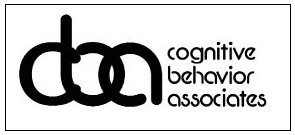It is an established fact that poor sleep patterns can and do contribute to worsening mental health conditions. Although we still don’t fully understand the role that sleep plays in our lives, all of the evidence suggests that our biological systems require regular, restful sleep to continue functioning properly. Let’s look at the importance of sleep for mental health.
Unfortunately, many of the same mental health concerns linked to poor sleep, including depression, anxiety, obsessive-compulsive disorder, and a variety of panic disorders, also list sleep disturbances and insomnia as common side effects. The result is that many people who struggle with mental health disorders end up stuck in a vicious cycle that only aggravates their condition while physically wearing them down.
Recognizing the Problem
Life takes us all for a spin at times. Sometimes you don’t even quite know why you’re struggling so hard because you feel your life is relatively easy compared with others. Regardless of the reason, you need to give yourself permission to not be okay. That’s how you begin the process of getting the treatment you need to be your best self.
Monitoring your sleep patterns is one of the easiest ways to identify a real problem versus a simple bad day. If you’re regularly taking more than a half-hour to fall asleep, waking up throughout the night, or waking up feeling tired then there’s a good chance that you are not getting the restful sleep you need to maintain your body and your brain. This is a clear sign that you need professional sleep therapy with Soundly Sleeping.
Taking Steps to Improve Sleep
Of course, no course of medical treatment can be completely successful without the cooperation of the patient. You’ll have to do some of your own work to ensure that your cognitive behavioral therapy in Los Angeles is as effective as possible. Fortunately, all it really takes is a few minor lifestyle changes to improve your sleep hygiene and prepare yourself for success. Here are a few tricks to try out yourself.
Set a Clear Sleep Schedule
Most of us love to stay up late and sleep in on the weekends. It’s an incredibly cathartic rebellion against the rest of the week, but it isn’t actually good for us. Regardless of how adventurous you are, the truth is that your body is a creature of routine. You are far more likely to fall asleep easily if you go to bed at the same time every day and wake up at the same time every day.
Avoid Electronic Devices for an Hour Before Bed
Our brains are hardwired to associate light with wakefulness. Blue light in particular appears to tell our brains it’s daytime, so our handy little smartphones are a major problem for restful sleep. In order to give your brain the chance, it needs to cool its jets, use the hour before bed to take a break from digital screens.
Try Melatonin
As a non-habit sleep aid, melatonin is useful for a lot of people. Our bodies naturally produce melatonin as the day progresses. As those levels rise, we begin to feel its effects, causing us to feel increasingly tired as the evening wears on. If you’re working on a computer or using your smartphone in the evening, your levels will stay artificially low. Using a melatonin supplement can be helpful in that capacity. However, you should consult with your doctor before using melatonin if you are on other medications just to be safe.
Getting Better with Cognitive Behavioral Therapy
At Cognitive Behavioral Associates, the goal is to treat the whole person. We work by recognizing potential triggers for behaviors that negatively affect your everyday life. Therapy centers around implementing a few lifestyle changes and working with your therapists. Doing this, CBT can help you to reclaim your mental health and treat the coexisting sleep disorders that are aggravating your condition.

